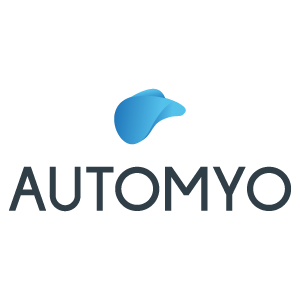Beyond Marketing Automation: why automation can't just be about Marketing Apps

Automation in the marketing world is no longer an option, but a necessity. In a rapidly evolving digital age, process automation and digitization are transforming the way companies interact with their customers, manage data and optimize their marketing strategies.
In this article, we will explore how automation can not only improve marketing activities, but also how it can integrate with and enhance existing business processes that gravitate around marketing.
The Essence of Automation in Modern Marketing
In recent years, we have seen a significant change in the world of marketing. The digital evolution has led to the emergence and exponential growth of marketing automation, an indispensable tool for companies aiming to remain competitive in today’s market.
However, many organizations face a dilemma: Are existing marketing automation applications sufficient to meet the evolving needs of the market?
The answer, unfortunately, is not always affirmative. That’s why more and more companies are looking for more advanced solutions, or those that offer 360-degree integrations, to integrate and enhance their marketing automation tools. This article explores in detail how automation can not only improve marketing strategies, but also integrate efficiently with other business processes, leading to a comprehensive and holistic digital transformation.
The Impact of Automation on Marketing Processes.
Automation offers marketers the ability to perform repetitive tasks more efficiently. From automated email delivery to audience segmentation, automation reduces manual workload, allowing teams to focus on more creative strategies and high value-added tasks.
In this scenario, we see Marketing Automation applications, which enable the building of real flows, but often fail to cover all aspects of digital marketing. This is where process automation platforms come in, allowing for greater customization and integration with other digital tools.’Automation should not be confined only to marketing. Integration with other business processes, such as sales, customer service and human resource management, can lead to a more cohesive and efficient business ecosystem.
Future of Marketing Automation
Ease of Use and Accessibility
Process automation platforms, make automation accessible to everyone, regardless of technical skills. This democratizes its use, allowing more people within an organization to contribute to the marketing strategy.
Flexibility and Customization
Unlike standard marketing automation solutions, no-tail automation platforms offer greater flexibility and customization options, allowing companies to tailor the tools to their specific needs.
But let’s look in more detail at how they provide that right added value, offering new integration possibilities and deeper personalization..
- Integration with CRM and Data Management: this allows the company to automatically synchronize all customer data.
- Social Media Automation and Analysis
- E-commerce and Marketing Integration: this integration allows users’ behavior on the site to be tracked and marketing communications to be tailored based on their interactions
- Customer Support e Marketing Automation: by integrating your customer support system with a no-tail automation solution, you can automatically send marketing communications personalize, improving the overall customer experience.
Conclusions
The need for integrated tools in marketing automation is clear. The adoption of no code automation platforms not only fills the gaps left by traditional marketing automation tools, but also paves the way for deeper personalization and better customer insight. In a world where data and personalization drive success, integration through no-tail solutions becomes a strategic imperative for companies of all sizes.

